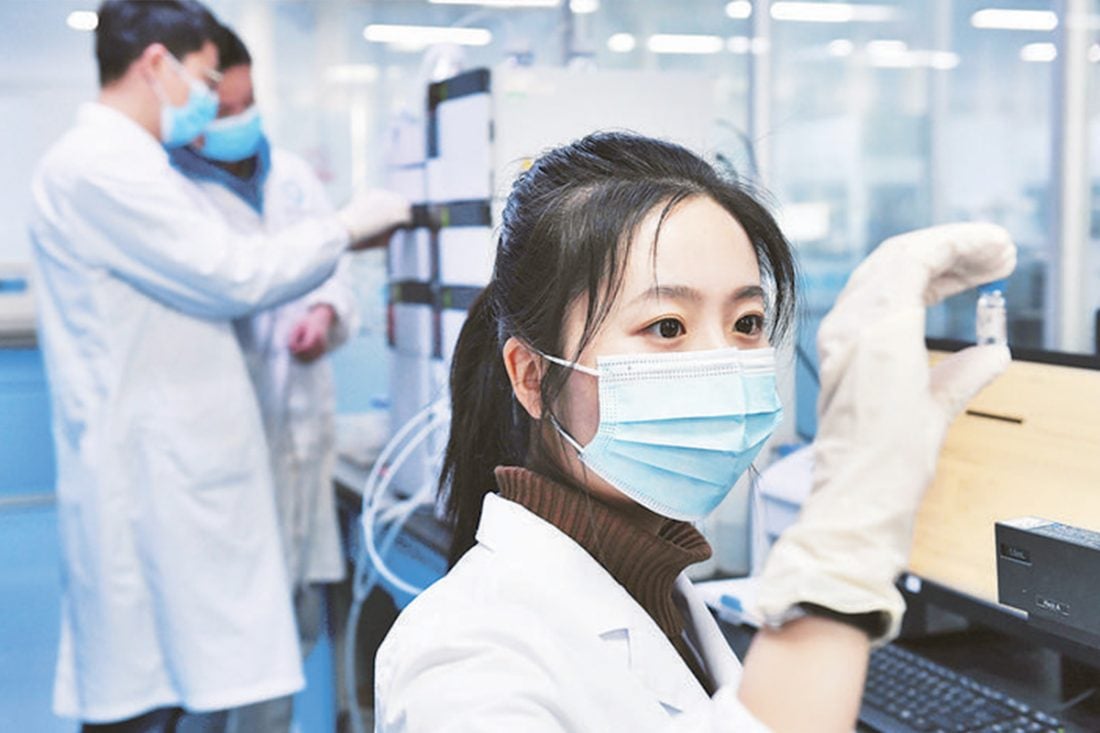
Biologics outsourcing to surge in 2023 as China’s innovation engine stalls
Submitted by:
Andrew Warmington
Vicky Xia and Joel Ranck of BioPlan share some first insights from the CPHI Annual Report
Having already benefitted from a COVID-based boom in the last two years, outsourcing of biologics globally is set to continue growing significantly in 2023. No production cliff is expected, even as COVID-related contracts reduce in scale, but the rapid growth of China’s biologics sector will slow.
These are some of the key findings in Part 1 of the CPHI Annual Report. The full report, which is available on 1 November, the first day of CPHI Frankfurt, features detailed insights from 12 experts and the findings from a survey of about 400 global pharma executives.
Outsourcing to grow
Nearly 36% of biopharma companies will be increasing their spending on outsourced R&D or biomanufacturing over the next 12 months. Average budgets for outsourcing at individual facilities also remain relatively steady, growing by a weighted average increase of 12.8% in 2022.
Ongoing efficiency improvements in manufacturing globally, a continued trend towards automation and a medium-term easing of capacity constraints as new manufacturing is built and the lessons from rapid COVID vaccine scale-ups are retained are other key trends, the report found. There is likely to be sufficient bioprocessing available at smaller (early) scales, including multiple CDMOs who are offering shorter wait times and strategies for using single-use technologies.
Over the next three years, we will see a normalisation of the supply chain and additional build-out of capacity. The real challenge will continue to be having access to human capital, trained and skilled staff with the quality expertise required to manufacture at GMP. This is particularly so for R&D and CMC personnel and particularly within cell and gene therapy.
Furthermore, as demand for skills grow with the expansion of cell and gene therapy pipelines, and the growth of Asian biopharma, the challenges of hiring and retaining good staff will become more acute. Large-scale (late phase and commercial) will face similar challenges for hiring, but there will still be options available for physical capacity for bioproduction, especially as COVID contracts reduce in volume.
China cooling
The report also identifies China’s much feted bio market as going through a gradual maturation stage, with relatively lower growth rates likely in the next few years. Investors in China are also now more discerning and looking to invest in true first-in-class biopharmaceuticals. For a market dominated by biosimilars and biobetters, this means a cooling of valuations and gradual structural changes.
Despite all the excitement, China still lags behind US, EU and Japan in innovative drug development. Most, if not all, of the innovations that have taken place in China’s biopharma sector are ‘fast-follow’ or belong to ADC and bio-specific categories, instead of ‘first-in-class’ biotherapeutics.
The industry is, of course, making adjustments as its market prospects change, and biotechs are now considering the out-licensing model for revenue, letting go of their ambitions to become full-fledged biopharmas. One indirect consequence of the transitioning domestic biologic market is the availability of CMO capacity for development,
So, looking five years ahead, the report predicts there will be around ten biologics licence applications/year in China. Areas identified for the needed transformation towards true first-in-class biopharmaceutical innovation were increased target-related basic life science research and translational research, with the latter being an especially weak link at present. Meanwhile, China may still need to further recruit interdisciplinary talents – notably clinical research and pharmacology - from the US and the EU to properly empower the growth of its bio industry.
Technical trends
Efficiency and manufacturing advancements will also continue apace in 2023 and beyond, with titres improving year on year. Some 50.4% of vendors were identified as working on automation and single-use adoption has never been higher, with 62.9% using it in upstream clinical production, up from just 45.0% in 2021. Automation and single-use systems cut demand for trained staff, reduce costs, and enable both small- and large-scale bioprocessing. So we will see more, especially as so many suppliers are working to improve and integrate automation at so many steps. In the next three years, we will see gradual adoption.
To download the report, visit: www.cphi-online.com
